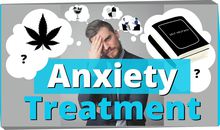Mindfulness vs Relaxation
These two practices are often confused.
Which is understandable given that the exercises can sound pretty similar!
You’ve probably wondered if there even is a difference.
They’re both just breathing or mediation… self-focus and whatnot. Right?
Actually they work on completely different mechanisms and philosophies!
I’ll show you how they’re different, including the differing brain mechanism of action, so you can get more out of both your relaxation and mindfulness practices!
Both are fantastic, but for different things.
If you hear someone say,
“turn your attention to your breath and observe as it comes in and flows out…”
That’s Mindfulness.
If they say,
“Deepen your breath…”,
or make some other similar change in your body…
That’s Relaxation!
Relaxation practices involve manipulating something within your body to cause an effect.
Mindfulness practice focusses on being aware.
You do not change anything. Only observe.
If you do a guided mindfulness exercise and are instructed to do relaxation, then either they’re getting their practices confused, or they’re including relaxation on purpose to help improve your ability to focus on the mindfulness meditation.
Relaxation quietens the Central Nervous System.
It does this through consciously changing a physiological effect, which provides feedback to the Central Nervous System to calm down.
For example deepening your breathing down into your diaphragm.
As we only breathe like this when we’re safe, it communicates safety to the Central Nervous System.
Which then winds its activity down.
You would notice a slowing of your heart beat, blood returning to your gut and tension leaving your muscles.
Mindfulness is awareness.
It’s your observer self… observing.
You may notice that you’re relaxed, OR you may notice that you’re tense.
It’s about approaching your thoughts with non-judgmental curiosity and acceptance.
You may become relaxed during mindfulness, but it’s a side effect.
Not the goal.
As we focus on the here and now, and accept and acknowledge our thoughts, feelings, and physical sensations, we can help to capture a mind that might easily wander into anxiety.
This may help us relax.
But it’s not the purpose of mindfulness.
Mindfulness is a practice of building your attention, your ability to stay present in your current moment.
And, as you improve… to bring in an attitude of acceptance and non-judgemental curiosity of what you observe.
Both practices involve meditative focus for a period of time.
But they are quite different.
You can see this difference reflected in our brain activity when we do relaxation or mindfulness.
In one neuroimaging study from 2018, they had 2 groups do a body-scan exercise.
A mindfulness group, being mindfully aware and scanning their bodies without any attempt to change anything, and a relaxation group, who relaxed each body area as they worked their way down.
Obviously, both groups showed activity in areas of the brain that deal with present-moment awareness and bodily attention.
How they differed, was that the mindfulness group showed improved sensory awareness and perception, while the relaxation group showed strengthening of areas that allow increased control.
So you can see some of the differences there.
I find that regular mindfulness can help with anxiety and mood through becoming more aware of unhelpful and worried thought tangles, allowing for reframing or acceptance and eventually reduction of these thoughts all together.
It trains you to stay more in the present, away from unhelpful rumination of the past, or catastrophisation about the future.
And thus increases feelings of safety and satisfaction with life.
With practice, it essentially trains our brain to the point that we can choose our thoughts, and thus emotions, for the amount of time we can be mindful for.
If you can do 20 minutes of mindfulness, you get to choose how you think and feel for 20 minutes.
If you can do an hour, then an hour.
Meanwhile, I find relaxation enables us to feed back to our bodies that we’re safe and thus rapidly reduce our adrenal baseline, which can become elevated without a regular relaxation practice, leaving us feeling stressed and anxious.
Relaxation practice can help soothe a body that has overdosed on adrenaline and a sense of constant danger for too long.
Both it and mindfulness can be tremendously helpful to your recovery from anxiety.
Do keep in mind that both of these practices involve regular mind training to become proficient.
Please don’t try an exercise just one time and determine that it’s not for you.
Do one daily for a month and then decide.
I doubt you’ll be disappointed in the results of your time investment in either one of these highly effective practices!










